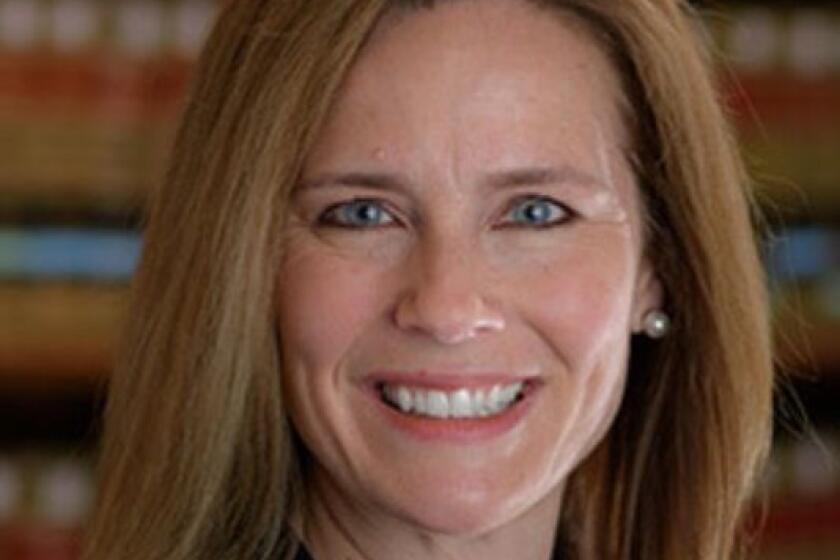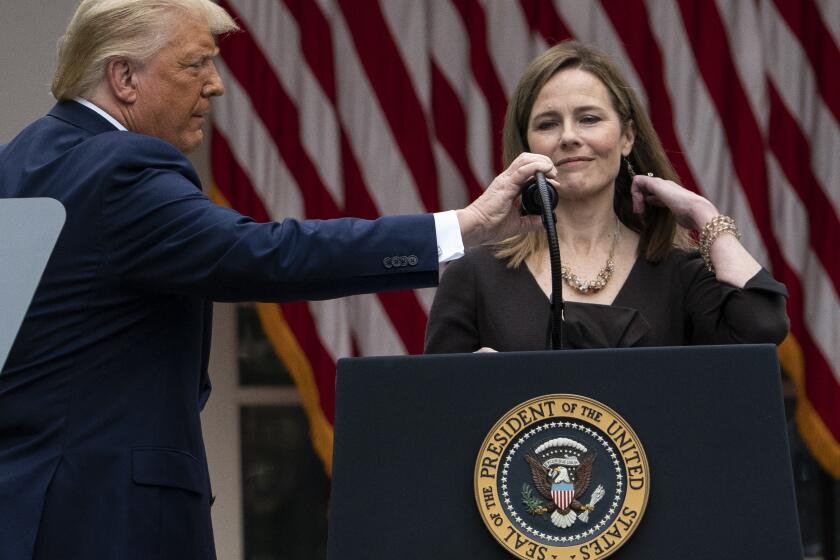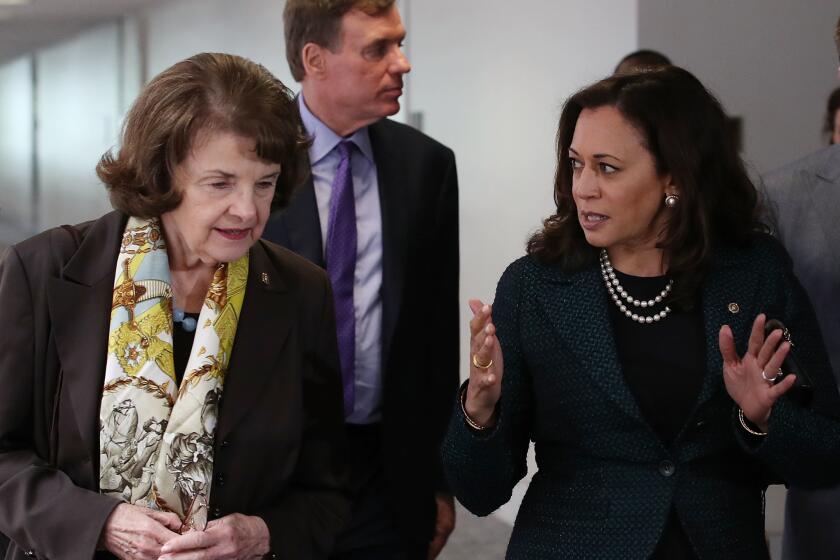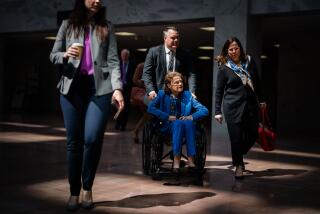What is the Democratsâ strategy for Barrettâs confirmation hearing and how will the GOP respond?
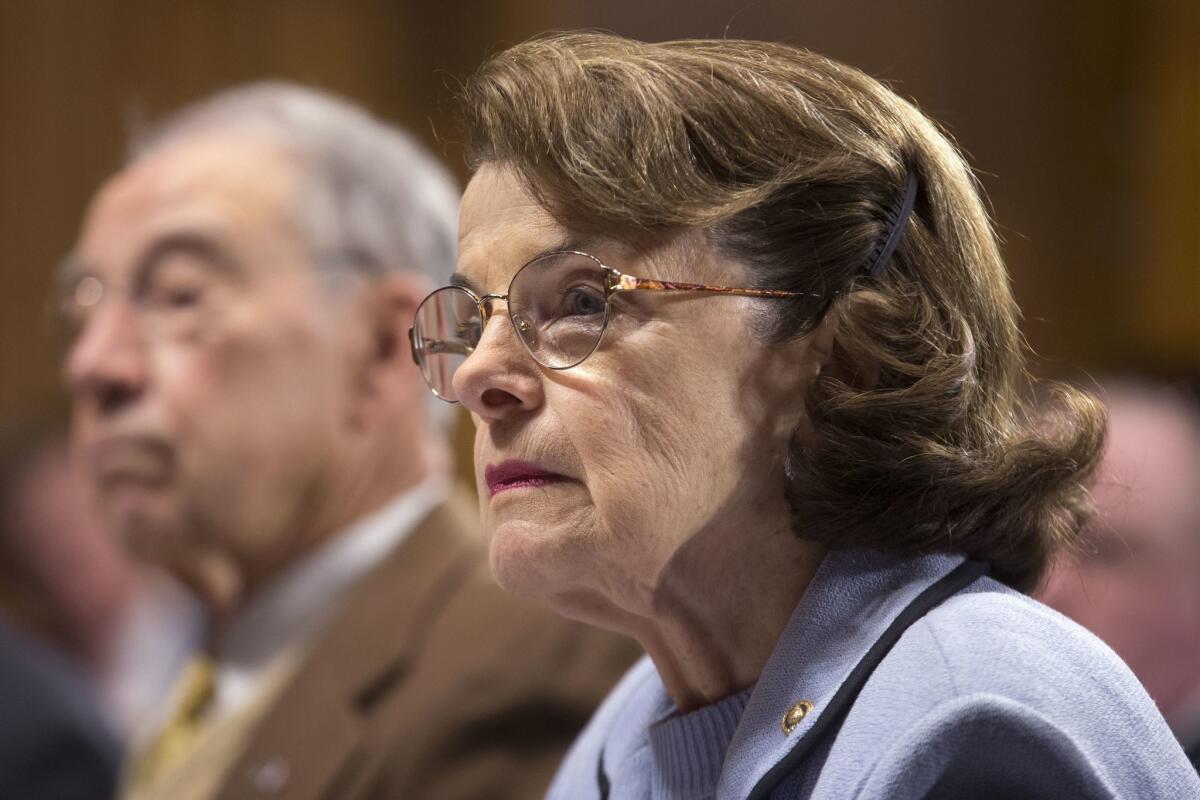
WASHINGTON â The Senate Judiciary Committee this week is considering the nomination of Amy Coney Barrett to serve on the U.S. Supreme Court.
Progressive groups fear she will move the high court significantly to the right on abortion, guns and other high-profile issues. Conservative groups hope she will solidify a conservative majority on the nationâs highest court for decades.
Barrettâs confirmation is likely the last major thing Congress will accomplish before the election, and Republicans and Democrats are each hoping to use it to draw out their supporters Nov. 3.
What to expect this week?
The hearing will last a total of four days, and is expected to follow the same format as for other recent Supreme Court nominees. Judiciary Committee members and the nominee gave opening statements Monday. Then the senators get two days to question Barrett. Theyâll hear from people who know her well and legal experts on Thursday.
Democrats are expected to ask to âhold overâ the nomination, which would delay a vote to send her nomination to the Senate until Oct. 22. That means it will be the last few days of October before the entire Senate can vote. She is expected to be narrowly approved.
Who is Amy Coney Barrett?
Barrett is a well regarded legal scholar, and an acolyte of former Justice Antonin Scaliaâs take on the law.
Barrett was born in New Orleans in 1972. She attended Notre Dame Law School, where she graduated first in her class in 1997.
She clerked for Judge Laurence Silberman on the D.C. Circuit Court of Appeals and Scalia on the U.S. Supreme Court. She was a professor at Notre Dame Law School from 2002 to 2017.
The American Bar Assn. gave her a âwell-qualifiedâ rating. She was confirmed in 2017 by a bipartisan vote of 55-43-2 to serve in the U.S. Circuit Court of Appeals for the Seventh Circuit in 2017.
She was previously vetted for the vacant Supreme Court seat in 2018 that was filled instead by Brett M. Kavanaugh.
She and her husband, Jesse Barrett, a former prosecutor who is now in private practice, have seven children, including one with Down syndrome and two who were adopted from Haiti.
Amy Coney Barrett, President Trumpâs nominee to fill Ruth Bader Ginsburgâs seat on the Supreme Court, is a hero to many judicial conservatives.
Can Democrats stop Barrettâs confirmation hearing?
Not likely. Boycotting the hearings would just allow Republicans to move faster, so that idea has been largely abandoned. To drag it out Democrats can make procedural motions or move to adjourn the hearings and demand more time, like they did during the Kavanaugh hearings, but it isnât likely to work since Republicans have a majority.
What else can Democrats try?
Democrats are hoping to raise public pressure on Republicans by focusing on what Barrettâs addition to the court is likely to mean for healthcare, workers rights, abortion access and other progressive issues. Theyâve accused Republicans of rushing to add another conservative to the bench just days before the presidential election.
And theyâve made a central point of Republicansâ reversal from 2016, when most sitting GOP senators said they would not give Merrick Garland, whom President Obama nominated in March, a hearing because it was too close to the election and voters should have a say.
Barrett would be the first nominee ever confirmed after July in a presidential election year, and through a process much shorter than the average period of consideration nominees have received since the 1970s.
âThe Senate and the American public deserve a deliberative, thorough process, and this falls far short,â California Sen. Dianne Feinstein, the most senior member of the Judiciary Committee, said in a letter asking Republicans to delay filling the seat until after the inauguration in January.
Democrats also sought to make the confirmation about process, saying because it is rushed, senators wonât have time to do due diligence in researching her, and the Justice Department didnât provide all of her writings to the committee.
How will Republicans respond?
Republicans have sought to keep the focus on Barrettâs qualifications and on accusing Democrats of opposing her because of her religious views.
Barrett has close ties to a Christian religious group called People of Praise that holds that men are divinely ordained as the âheadâ of the family and faith. It previously used the term âhandmaidenâ to describe female leaders. People of Praise is made up of people of various denominations, but members are mostly Catholic.
Some opponents of Barrett want Democrats to probe the groupâs hierarchical structure, especially because Barrett would be replacing the late Justice Ruth Bader Ginsburg, a feminist icon. Supporters have sought to frame any questions about her involvement in the group as anti-Catholic bigotry.
âUnited States senators are suggesting that Judge Barrett is too Christian, or the wrong kind of Christian, to be a good judge,â Senate Majority Leader Mitch McConnell (R-Ky.) said in a statement this week.
Wary of the potential minefield of delving into her personal beliefs, multiple Democrats said this week they do not intend to ask Barrett about her faith, or any other issues involving religion.
If Barrett is confirmed, there will be six Catholic justices on the court.
Conservative Catholics have provided much of the energy for the Republican effort to move the judiciary to the right. Democrats are treading gingerly.
What can we expect from Barrett this week?
Both Democrats and Republicans acknowledge she is qualified to serve on the Supreme Court.
Barrett has repeatedly, publicly provided her opinions on abortion and whether the court should uphold precedent in a way that few other Supreme Court nominees have in recent years. As a law professor, she wrote several lengthy articles on when justices should consider overturning long-standing precedents, including the Roe vs. Wade decision that granted the right to abortion.
In the past, when support from at least 60 senators was needed to confirm, nominees usually declined to say how they would vote on certain issues in order to avoid alienating senators. But now that the filibuster is no longer used for judicial nominations, Barrett needs only 50 votesâ with Vice President Mike Pence breaking any tie.
At the moment she appears to have at least 51 senators supporting, so she might feel more freedom to discuss her views.
Will Kamala Harris be there?
Yes. Californiaâs junior senator, who is Democratsâ vice presidential nominee, has said she will leave the campaign trail to participate in the hearings. She appeared remotely from her office Monday.
Harrisâ strong questioning skills from her time as a prosecutor may be one of the reasons Biden chose her as his running mate, but as the Biden campaign wants to avoid gaffes so close to election day, thereâs a chance sheâll tone it down. Sheâll likely be among the most closely watched committee members this week.
How important will Sen. Lindsey Lindsay Graham be?
This is the first Supreme Court confirmation with Sen. Lindsey Graham (R-S.C.) as chairman, and he sees it as a lifeline in his hotly contested reelection fight against Democrat Jaime Harrison in November.
âIf you ask me whatâs the most important thing I could be seen as doing in South Carolina? Confirming a Supreme Court justice, a conservative justice,â Graham told Politico.
Heâs been criticized for reneging on a pledge he made in 2016 and in 2018 that he would oppose confirming a court nominee in an election year even with Donald Trump as president.
Graham has said that Democratsâ actions during the Kavanaugh hearings in 2018 changed his mind, though his 2018 pledge came after the hearings.
Graham has been resolute about moving forward over any Democrat objections to Barrett. Expect him to let Democrats get away with fewer delaying maneuvers than during the Kavanaugh hearings, when the former chairman allowed them to delay the proceedings on multiple occasions.
What about Feinstein?
Feinstein needs to prove to skeptical progressives that she can take an aggressive stance against Republicans during a confirmation process most Democrats view as illegitimate, and also as the expected chair of the panel next year if Democrats win control of the Senate in 2021.
That will be doubly hard because Feinsteinâs 2017 brush with Barrett has long been fodder for Republicans accusing Democrats of imposing a religious test on judicial nominees. Expect it to come up ad nauseam this week.
Hereâs what Feinstein said at that hearing: âWhy is it that so many of us on this side have this very uncomfortable feeling that, you know, dogma and law are two different things? And I think whatever a religion is, it has its own dogma. The law is totally different. And I think in your case, professor, when you read your speeches, the conclusion one draws is that the dogma lives loudly within you.â
Feinsteinâs comment stemmed from an 1998 article that Barrett co-wrote in which she questioned whether Catholic judges might have to recuse themselves on certain issues that conflicted with their faith â specifically, the death penalty.
Barrett argued in the article that Catholic judges are âmorally precludedâ from enforcing the death penalty.
At the hearing, however, Barrett said she believed judges shouldnât put their personal views above the law.
California Sens. Dianne Feinstein and Kamala Harris face distinct challenges at Judge Amy Coney Barrettâs Supreme Court confirmation hearing.
Who are the other committee members to watch?
It seems most minds were made up before Trump announced the nominee, so there really arenât any wavering members.
Along with Graham, committee members Sens. Thom Tillis (R-N.C.), Joni Ernst (R-Iowa) and John Cornyn (R-Texas) all face competitive races in November and are expected to back Barrett. Republicans expect delivering another conservative voice to the bench will help them keep a majority in the Senate.
Two Republicans â Sens. Lisa Murkowski of Alaska and Susan Collins of Maine â have said they donât think the Senate should consider a nominee before the election, but that doesnât necessarily mean they are going to vote no. Collins is in a particularly tough race this year.
Will the pandemic affect the outcome of hearings?
So far, it doesnât look that way. But in order to get Barrett on the bench before the election, there is little room for things to go wrong.
Two committee members, Tillis and Sen. Mike Lee of Utah, have tested positive and are quarantining, but will be allowed to participate in the hearing remotely. But committee and Senate rules are clear that votes must be cast in person.
Multiple Republicans have tested positive for the coronavirus or decided to quarantine out of an abundance of caution after cases at the White House surged, which prompted McConnell to delay Senate votes until Oct. 19.
If more were to fall ill, or if those who tested positive have serious cases and cannot appear in person to vote, Republicans could struggle to have the votes needed to confirm Barrett before the election.
More to Read
Get the L.A. Times Politics newsletter
Deeply reported insights into legislation, politics and policy from Sacramento, Washington and beyond. In your inbox three times per week.
You may occasionally receive promotional content from the Los Angeles Times.

